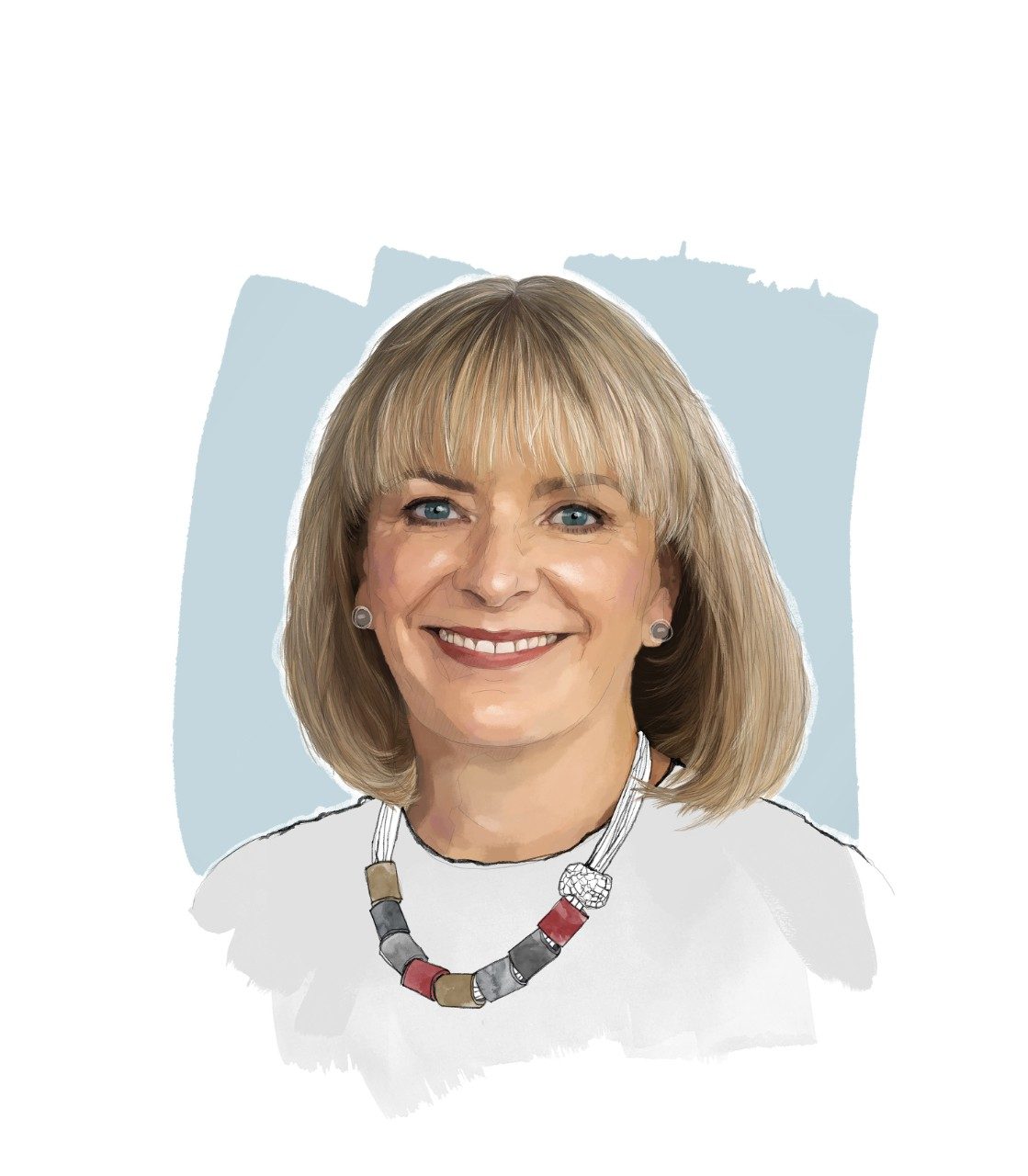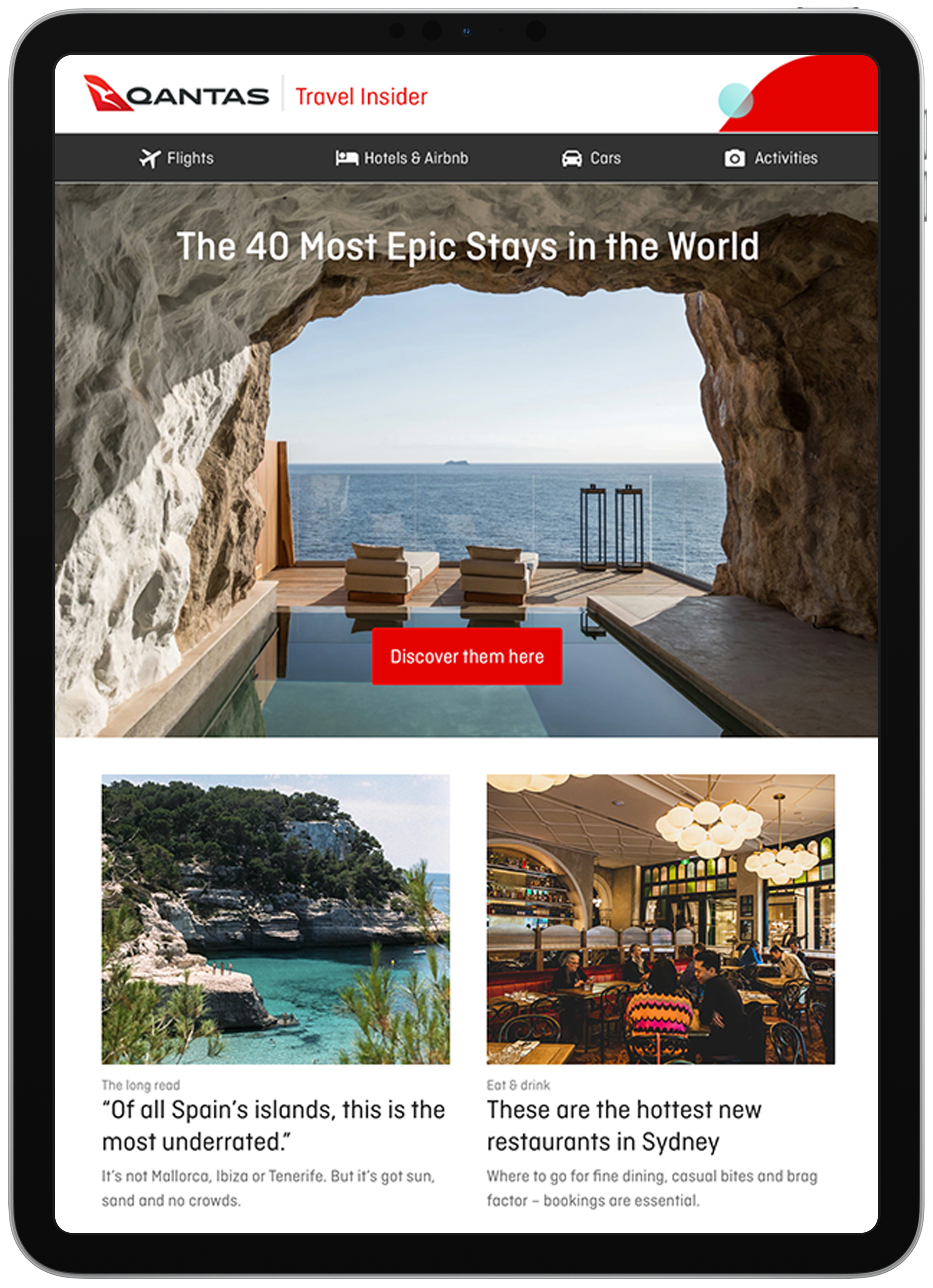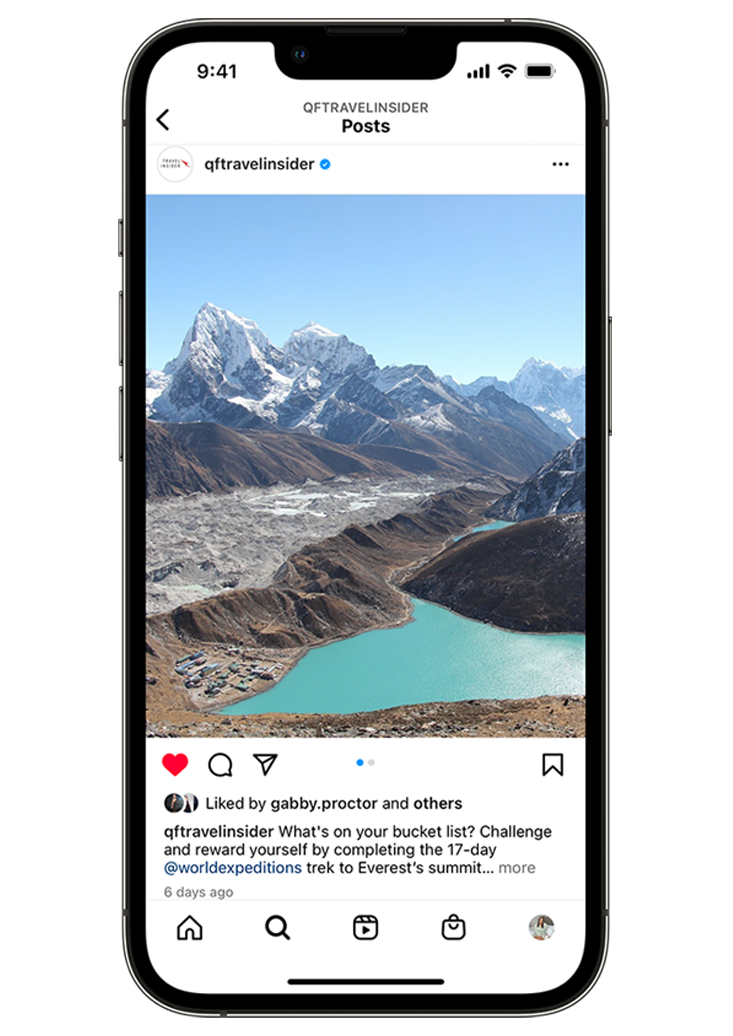Kate Quirke on Why Leading with Empathy Is Non-Negotiable

As the only woman CEO on the All Tech Index, Kate Quirke is challenging the male-dominated tech industry while reframing healthcare and what it means to be a leader.
Current role: CEO and managing director, Alcidion Group Ltd
Tenure: Almost four years
Age: 55
Previous roles: CEO, MKM Health; director, sales and marketing, MKM Health; sales and product management director, iSOFT; account director, Computer Sciences Corporation.
How do you describe great leadership?
It starts with empathy. I’ve always tried to understand the impact I have on the wider team in terms of what I’m asking of them. Leadership is about leading by example and being prepared to muck in when you’re needed. Obviously it’s also about having a very clear strategic direction and being able to paint that picture for your team. We share strategic plans, break them down into annual business plans then break those down into every individual’s contribution as part of their performance program of work.
Is that unusual, to drill it right down to the individual?
It’s something we’ve done for a long time. The general feedback that comes through is that staff understand very clearly what the vision is and what the goals and objectives are. We get a lot more buy-in, commitment and excitement about achieving things when they know what they individually contributed to the greater plan.
You’re the only female CEO on the All Tech index. The technology industry has just never got it right with female representation, let alone women in leadership roles. Why is that?
Well, I think this starts very early, with women in STEM. How do we encourage girls into science and technology in the first instance? We need to focus on building confidence in our girls, which then encourages them into those sorts of industries. We also need to look at how we present technology businesses. We’re all digital companies – there will be no distinction going forward – and we have to be out there marketing what we do. Technology is not just about sitting behind a computer all day with your headphones on, coding. Less than half of our team does that. The rest are out there talking to customers and understanding the business of healthcare. I think we don’t promote that enough. I don’t know if technology is any worse than finance, for example, but we need to bring up the female cohort more strongly into our leadership teams.
SEE ALSO: The Treasury Wine Estate's CEO Tim Ford on Creating A Strong Culture
So what are you doing to change the status quo at Alcidion?
More than half of my senior leadership team is female. I’ve mentored them, I’ve spent time with them and I’ve created an environment in which they have an opportunity to be challenged and to flourish. We also have a peer-mentoring program plus a Women at Alcidion program and we’re currently sponsoring the Australian Institute of Digital Health Women in Digital Health Leadership program. You need to be active about it. You can’t just sit back and hope that it’s going to happen.
Much has been made about flexibility over the past couple of years. How critical is hybrid working in attracting women to the workforce?
Absolutely critical. COVID has had a lot of negative impacts for women but the one thing it has done is increase or provide that flexible working environment. It’s taken away the stigma. I’ve always actively promoted people leaving and going to their kids’ sports activities or doing pick-up if they need to. Now, people don’t even have to explain where they are – we’ve gone both hybrid and flexible. We have a minimum of two days in the office and we introduced flexible working hours so if you want to start work at 6am and work until eight, go to the gym, take the kids to school, whatever… Everybody is extremely happy with it.
There have been winners and losers in COVID-19 and Alcidion clearly falls into the former category. What has the digital transformation of the past two years done for your business?
Well, it’s been phenomenal. Healthcare is a very big adopter of technology but not necessarily digital tech. When COVID came along, it was a catalyst for the industry to look at everything it’s doing. Initially, the focus was on telehealth. How do we treat people and keep them out of hospital? We’ve been working with RPA Virtual, probably one of the leading hospital home programs in Australia. It has devices that patients wear at home to monitor their blood pressure, temperature and oxygen saturation with data being constantly fed into a central control centre at RPA [Sydney]. We can’t continue to build hospitals at the rate that our population is getting older and sicker.
SEE ALSO: The Iconic CEO Erica Berchtold On How She Found Her Voice
You’re doing away with paper and giving doctors and nurses access to patient data in real time. Is that an easy sell or have you found the medical profession to be a bit set in its ways?
I’ve been doing this for more than 20 years. We started with administration – so we were removing the paper in the admission forms – and that was relatively straightforward. As we moved into replacing the doctors’ notes, it’s been challenging. But now we have a much younger population coming through and the only place in their lives that they actually come across paper is in their hospital environment. So they’re demanding software supports and we’re seeing a real shift in uptake. We’re losing nurses from the profession at such a profound rate. We have to do things that make their lives better.
Data and the ability to use it properly is critical but so are instincts. When it comes to diagnosis, what’s your take on when to follow the data and when to follow your gut?
It’s one of the reasons that we refer to what we’re doing as augmented instead of artificial intelligence. My chief medical officer refers to it as reducing cognitive burden – we’re trying to free up the doctor’s mind, give them more time to actually diagnose by presenting them with the information. Let’s say we’re looking at a patient of a certain age who has received a pathology result that indicates increased white blood cells and they have an increase in temperature. [The technology will ask] “Have you scanned this patient for septicaemia?” The data will present options but it doesn’t take away the final decision and requirement for the doctor to not only diagnose but to document their diagnosis.
Which will help other doctors down the track…
Absolutely. And that’s how you feed into the artificial intelligence. It’s machine learning – you’re taking the information and continuing to learn from it over time. You’re capturing information without the doctors and nurses really being aware that they’re capturing it.
What’s your greatest strength as a leader?
My senior leadership team tells me that they haven’t ever worked for anyone that cares about them as much as I do. I also think I have a very strong instinctive understanding and reaction to things – I can sum up a situation very quickly and have great clarity as to what I think the solution or way forward is.
And what about your greatest gap?
The same thing that’s a positive is sometimes a negative. I’m very quick in decision-making but I’m not someone who sits and takes an analytical view. So I surround myself with people who complement my strengths.
Some people believe that when you care so much about your team, you lose some of the business edge. What’s your opinion on that?
We should all come to our work with a purpose and a desire to do it but it shouldn’t be the number-one driving force in what we do. Fifteen years ago I was driven, driven, driven; go, go, go. I have a different perspective now that comes from being post-50. Health comes first, life comes first. Family should come before your work environment. I’m not saying I don’t work crazy hours some weeks. But when anyone comes to me and says, “I’m ill” or “I’ve got to do this”, I say, “It’s fine, we have it covered – you deal with what you have to deal with and come back.” That’s caring but it’s not losing the business edge. I am a very driven individual – absolutely driven by goals, by numbers, by achieving the targets we set – but I don’t think you need to be hard core and uncaring to achieve that.
And what advice would you give a brand-new CEO?
Play to your strengths. Surround yourself with people who make up for your weaknesses. And be open – you don’t know all the answers and don’t think you need to. You’re a leader, not the doer of everything that is required. Believe in the people around you and support them.


